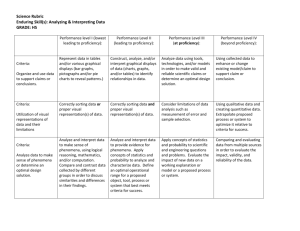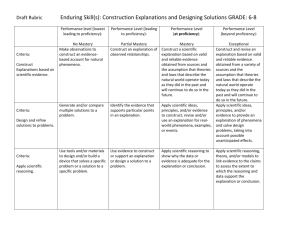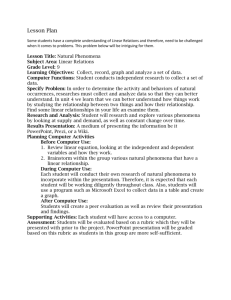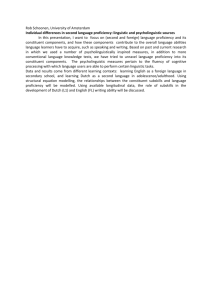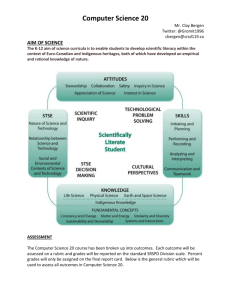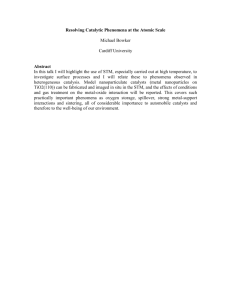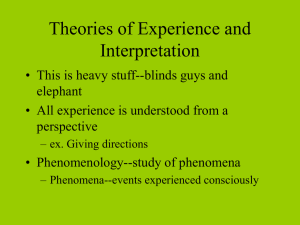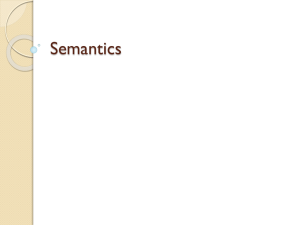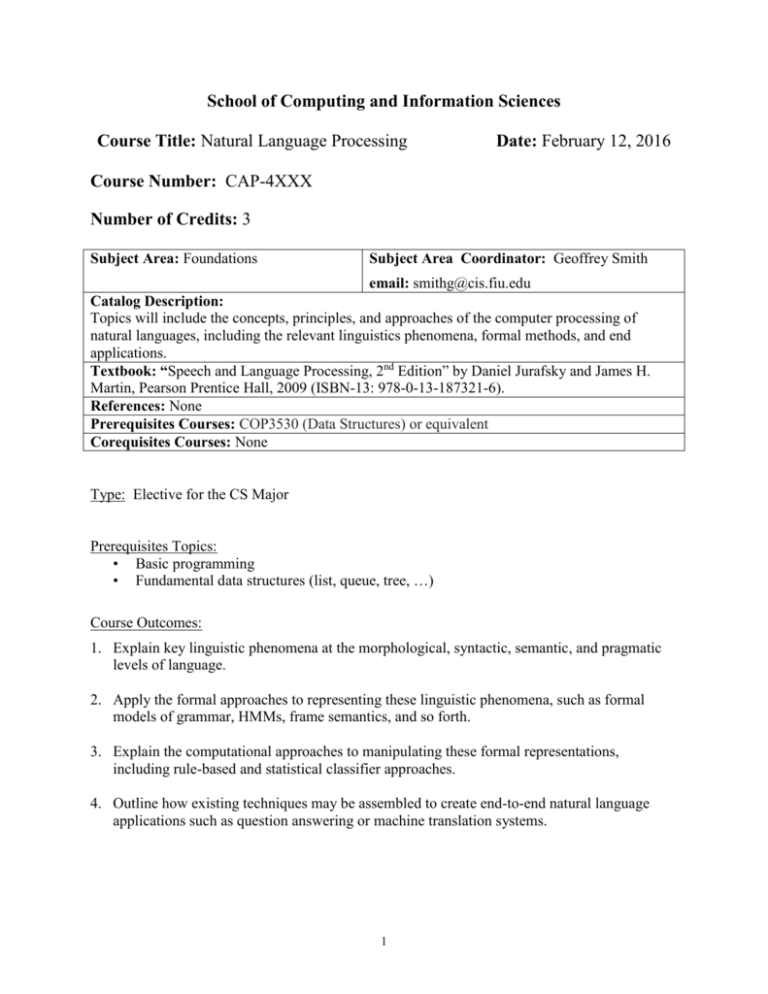
School of Computing and Information Sciences
Course Title: Natural Language Processing
Date: February 12, 2016
Course Number: CAP-4XXX
Number of Credits: 3
Subject Area: Foundations
Subject Area Coordinator: Geoffrey Smith
email: smithg@cis.fiu.edu
Catalog Description:
Topics will include the concepts, principles, and approaches of the computer processing of
natural languages, including the relevant linguistics phenomena, formal methods, and end
applications.
Textbook: “Speech and Language Processing, 2nd Edition” by Daniel Jurafsky and James H.
Martin, Pearson Prentice Hall, 2009 (ISBN-13: 978-0-13-187321-6).
References: None
Prerequisites Courses: COP3530 (Data Structures) or equivalent
Corequisites Courses: None
Type: Elective for the CS Major
Prerequisites Topics:
• Basic programming
• Fundamental data structures (list, queue, tree, …)
Course Outcomes:
1. Explain key linguistic phenomena at the morphological, syntactic, semantic, and pragmatic
levels of language.
2. Apply the formal approaches to representing these linguistic phenomena, such as formal
models of grammar, HMMs, frame semantics, and so forth.
3. Explain the computational approaches to manipulating these formal representations,
including rule-based and statistical classifier approaches.
4. Outline how existing techniques may be assembled to create end-to-end natural language
applications such as question answering or machine translation systems.
1
School of Computing and Information Sciences
CAP-4XXX
Natural Language Processing
Relationship between Course Outcomes and Program Outcomes
BS in CS: Program Outcomes
Course Outcomes
a) Demonstrate proficiency in the foundation areas of
Computer Science including mathematics, discrete
structures, logic and the theory of algorithms
2,3
b) Demonstrate proficiency in various areas of
Computer Science including data structures and
algorithms, concepts of programming languages and
computer systems.
c) Demonstrate proficiency in problem solving and
application of software engineering techniques
2, 3, 4
1,4
d) Demonstrate mastery of at least one modern
programming language and proficiency in at least
one other.
e) Demonstrate understanding of the social and ethical
concerns of the practicing computer scientist.
f) Demonstrate the ability to work cooperatively in
teams.
g) Demonstrate effective communication skills.
4
Assessment Plan for the Course & how Data in the Course are used to assess
Program Outcomes
Student and Instructor Course Outcome Surveys are administered at the conclusion of each
offering, and are evaluated as described in the School’s Assessment Plan:
http://www.cis.fiu.edu/programs/undergrad/cs/assessment/
2
School of Computing and Information Sciences
CAP-4XXX
Natural Language Processing
Outline
Topic
• Linguistic Phenomena
• Morphology
• Parts of Speech
• Syntax
• Model-Theoretic Semantics
• Lexical Semantics
• Pragmatics
• Formal Representations
• Finite State Automata
• Context-Free Grammars
• First Order Logic
• Frame Semantics
• Other Structures
• Formal Methods
• Hidden Markov Models
• Sequence Classification
• Syntactic Parsing
• Forward Algorithm, Viterbi Algorithm
• Rule-Based Systems
• Statistical Classifiers
• End Applications
• Question Answering
• Machine Translation
• Information Extraction
• Conversational Agents
Total
3
Lecture
Hours
6
Outcome
6
2
6
3
4
4
22
1
School of Computing and Information Sciences
CAP-4XXX
Natural Language Processing
Course Outcomes Emphasized in Laboratory Projects / Assignments
Outcome
Number of Weeks
Homework problems addressing
3
fundamental linguistic phenomena
(Outcome 1)
Homework problems addressing
3
formal representational issues
(Outcome 2)
Homework problems addressing
4
computational approaches to NLP
(Outcome 3)
Homework problems addressing
2
assembling end-to-end systems
(Outcome 4)
Oral and Written Communication
No significant coverage
Written Reports
Oral Presentations
Number
Approx. Number
Number
Approx. Time for
Required
of pages
Required
each
0
0
0
0
Social and Ethical Implications of Computing Topics
No significant coverage
Topic
Class time
Student Performance Measures
4
School of Computing and Information Sciences
CAP-4XXX
Natural Language Processing
Approximate Number of Credit Hours Devoted to
Fundamental CS Topics
Fundamental CS Area
Algorithms
Software Design
Computer Organization and
Architecture
Data Structures
Concepts of Programming
Languages
Core Hours
2
-
Advanced Hours
2
-
0.5
-
-
Theoretical Contents
Topic
Class time
Natural Language
12
Processing
Problem Analysis Experiences
None
Solution Design Experiences
None
5
School of Computing and Information Sciences
CAP-4XXX
Natural Language Processing
The Coverage of Knowledge Units within Computer Science
Body of Knowledge1
Knowledge Unit
AL3*
AL7
IS1*
IS3*
IS7
IS8
Total
*Indicates a core topic
Topic
Fundamental Computing Algorithms
Automata Theory
Fundamental issues in intelligent systems
Knowledge representation and reasoning
Natural Language Processing
Machine learning and neural networks
-
1
Lecture Hours
2
2
2
2
12
2
22
See Figure 5-1 in Computing Curricula 2001: Computer Science. Final Report of the IEEE and ACM
Joint Task Force on Computing Curricula, available at:
http://www.acm.org/education/curric_vols/cc2001.pdf
6

